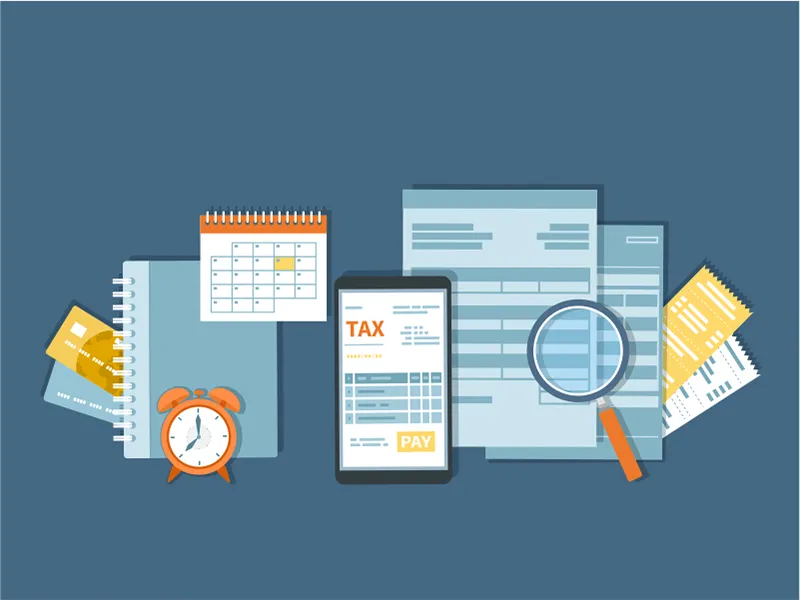
As of April 1, 2023, a new financial year has begun, bringing with it a series of changes that could have a significant impact on your finances and taxes. Specifically, there are various income tax modifications that are now in effect, and it’s essential to understand what they entail.
Here’s a look at the top Income Tax changes that have come into effect from Apr 1, 2023.
Zero income tax for incomes up to Rs. 7 lakhs
Starting from April 1, individuals with annual taxable income of up to Rs. 7 lakhs need not pay any income tax, provided they opt for the new tax regime. This is led by the doubling of tax rebate under Section 87A of the Income-tax Act, 1961. Under the new tax regime, the tax rebate has been revised from Rs 12,500 to Rs 25,000. So, if a person’s yearly taxable income (once he/she has claimed all the eligible deductions) is within Rs 7 lakhs, then no income tax will be payable under the new tax regime.
Revised income tax slabs
Budget 2023 made the ‘new tax regime’ as the default tax regime and along with this, the income tax slabs have also been revised for the financial year. As per the FM’s announcement, there will now be a total of 5 income tax slabs instead of the earlier six.
The table below contains the new income tax slabs:
| Income (in Rs) | Tax rate (%) |
| 0 to 3,00,000 | 0 |
| 3,00,000 – 6,00,000 | 5 |
| 6,00,000 – 9.00,000 | 10 |
| 9,00,000 – 12,00,000 | 15 |
| 12,00,000 – 15,00,000 | 20 |
| Above 15,00,000 | 30 |
New tax regime is default regime
From April 1, 2023, the new tax regime has become the default option, although a tax payer will still have the option of choosing the old tax regime. While furnishing investment declaration to employers, employees will now have to ensure that they’ve made the right choice of tax regime. In case an option has not been chosen, the employer will assume new tax regime applicability and deduct taxes accordingly.
If a taxpayer does not file the income tax return (ITR) within the filing deadline, then he/she cannot opt for the old tax regime for filing ITR.
Increase in basic exemption
With the revision in the income tax slabs under the new tax regime, income of up to Rs. 3 lakhs is exempted from tax. This is because the basic exemption limit has been raised from Rs. 2.5 lakhs to Rs 3 lakh. This is applicable for all individual taxpayers across all age groups.
Individuals with yearly income up to Rs. 3 lakhs and who opt for the new tax regime in FY 2023-24 will not be required to pay income tax or file income tax return.
Extension of standard deduction benefit
The new financial year will also see the benefit of standard deduction being extended to salaried individuals and pensioners. Under the new tax regime one can avail up to Rs 50,000 of standard deduction. Family pensioners who choose the new tax regime can also claim a standard deduction of Rs 15,000.
This will help salaried individuals to bring down their taxable income. So, if a person has an annual income of Rs 7.5 lakhs and claims standard deduction benefit under the new tax regime, he/she will have to pay no income tax.
Lower surcharge rate under new tax regime
The government has lowered the surcharge rate under the new tax regime in Budget 2023. As per the new law, for an individual having taxable income exceeding Rs 5 crore and opting for new tax regime, surcharge levied will be at 25% instead of 37%.
Higher limit under presumptive tax
New financial year will also start off with a hike in the limit under presumptive scheme. This is primarily for professionals and self-employed individuals who earn gross receipts of up to Rs. 75 lakhs in a year. The main condition for the applicability of this limit is that the claimant’s net cash proceeds should not be over 5% of the total receipts. For MSMEs, the presumptive taxation limit is Rs 3 crores.
Tax on wins from online game
From April 1, 2023, anything that one earns from online games is subject to TDS and the earlier minimum threshold has been taken off. TDS will be applied at 30% on net winnings amount (i.e., winnings from online games after taking off entry fees, if any).
Non-government employees can enjoy higher tax exemption on leave encashment
Tax exemption limit on leave encashment has been hiked for non-government employees. From the earlier Rs 3 lakhs, the maximum limit has now been hiked to Rs 25 lakhs.
No more endless tax-free proceeds from life insurance policies
From April 1, there will be a limit on the tax-free proceeds that an individual can get from life insurance policies. This does not apply to ULIPs. Maturity proceeds from life insurance policies will now be taxable if the total premium payment on such policies is over Rs 5 lakhs in a financial year.
As a relief for policyholders, this new rule will apply for insurance policies that are bought on or after April 1, 2023. In case you have bought life insurance policies before March 31, 2023, the proceeds from them will be tax-free no matter the premium amount paid.
TDS benefit on EPF withdrawal
For specific cases, TDS on EPF withdrawal will now be 20% instead of the earlier 30%. This applies to cases where PAN is not available. TDS is applicable only for withdrawals before the completion of five years.
Relief on TDS for non-ITR filers
Individuals who do not need to file ITR as per definitions in section 206AB and section 206CCA will not be subjected to higher TDS.
No LTCG benefit in debt mutual funds
Investors can no longer enjoy indexation benefit on debt mutual funds where equity investment is under 35%. From April 1, capital gains from these will be taxed at the income tax rates applicable on an individual’s income. This will bring debt mutual fund returns at par with Bank FD returns as far as tax applicability is concerned.
Cap on capital gains deduction from property sale
There will be a cap of Rs. 10 crores on the deduction that can be claimed from capital gains from residential property sale. As per Section 54 and Section 54F, an individual can claim tax exemption on the capital gains arising from sale of residential house, provided the capital gains are invested in another house property.
Conclusion
With all of these changes coming into effect from April 1, tax payers must carefully read through and understand the implications of each. This will help in being prepared for the tax obligations that will come up in the new financial year.
FAQs
The highest surcharge rate has been reduced to 25% from the earlier 37%. As a result, a 25% surcharge will be applied on income over Rs 2 crores.
Investment in Market Linked Debentures (MLDs) post April 1 will be considered as short term capital assets. Thus, any gains from these will be considered as short-term capital gains and taxed accordingly.
Maximum deposit limit under senior citizens savings scheme extended to Rs 30 lakh from Rs 15 lakh, to Rs 9 lakh from Rs 4.5 lakh and to Rs 15 lakh from Rs 7.5 lakh for monthly income scheme (single and joint accounts respectively).
Mahila Samman Savings Certificate for female investors was announced in this union Budget 2023. This is a one-time, short-term savings plan that will be available for two years.


























